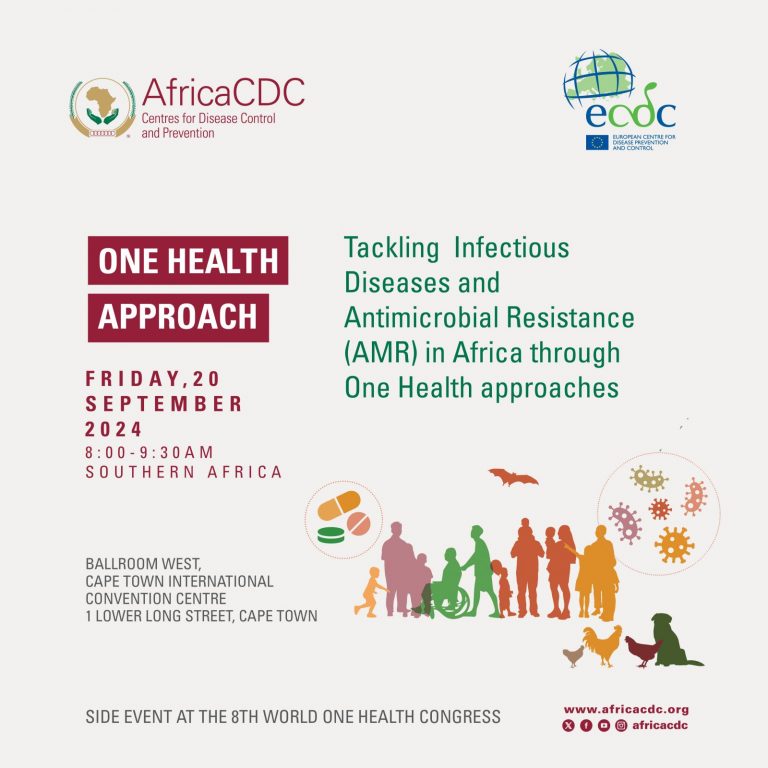Foreign News
AMR in Focus at Africa’s First One Health Congress
AJAGBE ADEYEMI TESLIM
Cape Town hosted the first World One Health Congress in Africa, where Africa CDC led a well-attended side event on antimicrobial resistance (AMR), a rapidly growing health threat across the continent.

AMR occurs when microorganisms—bacteria, viruses, fungi, and parasites—resist treatment. In many African countries, the unchecked sale and misuse of antibiotics for viral infections and livestock worsens the problem. Poor hygiene, inadequate infection control, and improper waste disposal further accelerate the spread of resistant microorganisms.
At the Cape Town event, experts highlighted critical challenges, including knowledge gaps among policymakers on AMR, limited sustainable domestic financing and heavy reliance on external support. For example, Dr Mark Obonyo, an AMR specialist from the Food and Agriculture Organization, emphasised the need for AMR champions and locally adapted best practices.
Despite challenges, early successes were highlighted. For example, Tanzania established a high-level 10-member parliamentary group to lead its AMR response. Dr Canaan Tinashe Hodobo, AMR focal point for Animal health and coordinator of AMR surveillance at the Central Veterinary Laboratory in Zimbabwe presented on the country’s AMR response, which includes a One Health Lab network of 14 labs, including five for testing animal products. Furthermore, the country has also introduced the One Health programme at the university level and within the nursing curriculum.
Dr Yewande Alimi, the Africa CDC and African Union lead on AMR, reminded participants that more than 20 percent of Africans still lack access to essential antibiotics, even as AMR claims more lives than HIV-AIDS, TB and Malaria combined. However, key milestones include adopting and financing national action plans, stronger IPC and WASH and expanding AMR surveillance systems.
In her address to the plenary, Dr Alimi said AMR stands as one of the leading public health challenges of the 21st century, with Africa having the world’s highest mortality rate from AMR infections. This comes as the continent bears a disproportionate burden of zoonotic disease outbreaks. Between 2012 and 2022, zoonotic outbreaks there increased by 63 percent.
Dr Alimi also expressed concern that 85% of Public Health Emergencies of International Concern (PHEICs) are zoonotic, citing examples such as the 2009 H1N1 pandemic, the Ebola outbreaks in West Africa (2014-2016), the Zika virus outbreaks (2015-2016), the Kivu Ebola epidemic (2018-2020), the COVID-19 pandemic, and the ongoing Mpox outbreak.
“Diseases once confined to specific geographies are increasingly spreading to new areas, exposing vulnerable populations to previously unseen health risks,” said Dr Alimi. “We face a multifaceted crisis requiring a united response: A One Health Approach.”
She outlined Africa CDC’s One Health strategy, focusing on zoonotic diseases, AMR, food safety, and climate change. The plan includes advocating for One Health policies, amplifying Africa’s voice on AMR at global forums like the UN General Assembly, and engaging international partners to drive research, build capacity, and mobilise resources. It also prioritises enhancing surveillance, diagnostics, and emergency response, as demonstrated in the current Mpox outbreak, while promoting cross-sector collaboration between health, agriculture and environmental sectors to implement sustainable solutions.
“We recognise that a One Health approach is necessary to deliver effective and efficient infectious disease surveillance, disease prevention and control, and public health emergency preparedness and response to achieve the African Union’s Agenda 2063: the Africa We Want,” she said.
A week after the One Health Congress, Africa CDC, in collaboration with One Health Trust and other partners, hosted a series of policy dialogues ahead of the United Nations General Assembly High-Level Meeting on AMR. The assembly concluded with global leaders endorsing a political declaration that commits to clear targets and actions, including reducing the estimated 4.95 million annual deaths caused by AMR by 10 percent by 2030. The declaration also calls for sustainable national financing and US$100 million in catalytic funding to help achieve a target of at least 60% of countries having funded national action plans on AMR by 2030. This goal is to be reached through, for example, diversifying funding sources and securing more contributors to the Antimicrobial Resistance Multi-Partner Trust Fund.
